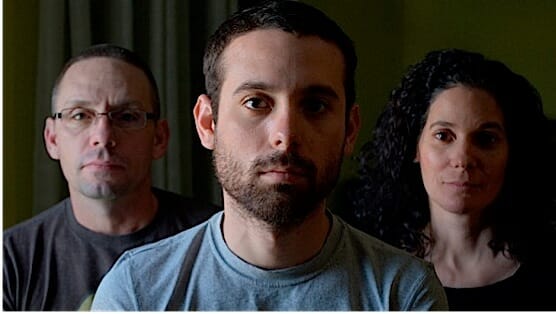
In addition to irrevocably changing the lives of tens of thousands of military families, the decisions to invade Afghanistan and then Iraq also undeniably altered the trajectory of American nonfiction filmmaking in the early 21st century. The first prolonged wars since the advent of social media were met with keen public interest, and with advances in digital cameras the barrier to entry was lower than ever for filmmakers.
Especially early on, many documentaries examined the conflict from soldiers’ points-of-view (The War Tapes, Gunner Palace, Occupation: Dreamland and of course Restrepo). The further the wars dragged on, however, the more complex and less experiential emerging nonfiction portraits generally became. Some looked at specific soldiers (The Tillman Story, Murph: The Protector), others the difficulty of reentry into civilian life (Where Soldiers Come From, Hell and Back Again). Some films examined bungled policy (No End in Sight, Standard Operating Procedure), or architects and media coverage of the same (The Unknown Known, The War You Don’t See), while others threw a spotlight on the military industrial complex more broadly (Why We Fight).
Now, however, we’re in an era less of psychological post-mortem than specialized, human-interest revisitation. Case in point: The Kill Team, winner of the Best Documentary Feature at last year’s Tribeca Film Festival, which focuses on one of the more incendiary stories of the Afghan War theater, in which members of an American unit were accused of deliberately targeting and killing innocent civilians, all for simply the thrill of the kill.
Directed by Daniel Krauss, Oscar-nominated for his short The Death of Kevin Carter, the film unfolds chiefly through the perspective of Adam Winfield and his parents, Christopher and Emma. When, in early 2010, 21-year-old Winfield heard about and witnessed members of his platoon murdering innocent civilians—planting so-called “drop weapons” on the corpses to make it appear as though they were terrorists—he reached out to his father by instant message, unnerved by these heinous war crimes. Left on his own and with threats against his life by the commanding officer, Staff Sergeant Calvin Gibbs (who was at the center of these actions), Winfield would find himself drawn into a moral abyss, eventually forced, in May of that year, to make a split-second decision. When the platoon’s actions were later discovered, Winfield was among five charged with premeditated murder in a military court. (Six more would be charged with participating in a cover-up.)
The Kill Team is certainly bracing in its forthrightness. With extraordinary access to the key individuals involved in the case—including the candid confessions of two other members of the so-called “Kill Team,” Jeremy Warlock and Andrew Holmes—Krauss’ briskly paced film takes a thought-provoking look at one of the types of stories of war that is so frequently forgotten once the first wave of stateside civilian outrage dissipates after a couple of news cycles.
And it tries to elucidate a critical erosion in thinking. The interviewees talk about both the met and unmet expectations of initial enrollment in their Afghan deployments, and how violence, of almost any sort, was preferable to the boredom of inaction. (Holmes talks about Kenny Loggins’ “Danger Zone,” from Top Gun, popping into his head upon first being fired at.) Chafing at restrictive rules of engagement, and utterly lacking faith in a campaign of “hearts and minds” outreach that they saw making little or no progress, these soldiers dangerously dehumanized the Afghan civilians around them.
The Kill Team skims the surface of something more substantive, though. Krauss is obviously sympathetic to the Winfields’ plight, which is certainly no offense, but that closeness to his primary subjects sometimes clouds his editorial judgment. The film is edited in a manner which tries to enforce emotional identification on the viewer before chronological sense, and Krauss unnecessarily stacks the deck at times by using cheap emotional gambits like unnaturally posing the Winfields in silhouette, talking to each other while looking out an open window.
Krauss also goes to considerable lengths to present Gibbs (who is not interviewed) as the main villain of the piece, only using photographs of him in extreme profile, looking away from the camera or with his face otherwise obscured. Despite the seemingly inarguable evidence that Gibbs may have been the instigating element in this terrible behavior, and the most culpable, this filmmaking choice undermines the thematic exploration of the gray morality of war. It tries to tell its audience that Gibbs was the root or even sole cause of these soldiers’ ethical compasses gone haywire, when their own stories say otherwise.
The end result is a film that leans heavily on a viewer’s innate interest in tangled philosophical questions of guilt and corrupted innocence. The Kill Team in many respects benefits from its trim slate of interviewees, but as it progresses it also starts to feel like it could use a larger frame, and more context of the United States’ dwindling interest and enthusiasm for the war in Afghanistan. For instance, Winfield’s military defense attorney, Eric Montalvo, is featured in the film, but almost always holding forth in monologue to his client. Where is a more official presentation of the government’s case against Winfield specifically, as well as some of the contributing factors to this collective psychological disengagement if (as one soldier says) it’s much more common behavior than civilians assume? Krauss is caught up in the human drama and stakes of The Kill Team, which he sells quite well. But there’s even more here, underneath the surface.
Director: Daniel Krauss
Distributor: Oscilloscope Laboratories
Release Date: Aug. 8, 2014
Entertainment journalist Brent Simon is a regular contributor to Screen Daily and Paste among many other outlets, as well as a member and former three-term president of the Los Angeles Film Critics Association. You can follow him on Twitter and on his blog.